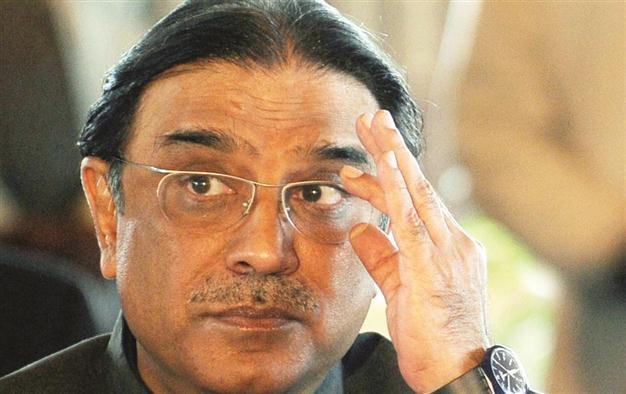Zardari flees amid Pakistan coup scenario
ISLAMABAD / WASHINGTON

Pakistan’s Army Chief Gen. Ashfaq Pervez Kayani (R) met with top commanders as the political turmoil in the country increases. Prime Minister Gilani (L) on Jan 11 received a stark warning from the military after it accused them of violating the constitution. AP photo
Pakistani
President Asif Ali Zardari left for Dubai yesterday for a “scheduled one-day trip” as
Pakistan’s
military chief met top commanders yesterday amid a widening rift between the powerful armed forces and the civilian government.
“This trip will be for a follow-up medical check-up and then he’ll be returning right away,” an associate of Zardari said. However, a senior member of the ruling Pakistan People’s Party (PPP) said Zardari had left Pakistan to attend a wedding in Dubai.
Early last month, Zardari went to Dubai for medical treatment, which triggered speculation the leader was pushed out by the army or was fleeing a potential
coup.
Meanwhile, Pakistan’s military chief was meeting top commanders, media reports and a military officer said, fueling speculation about the army’s next move. Military spokesman Maj. Muhammad Ali Diyal declined to say what the talks at army headquarters were about, but the meeting is likely to fuel speculation about the army’s next move in the country’s political and legal crisis.
While most analysts say Chief of Army Staff Gen. Ashfaq Pervez Kayani has little appetite for a coup, they say the generals may be happy to allow the Supreme Court to dismiss the government by “constitutional means.” On Jan. 11, the
prime minister fired the defense secretary and the military issued an unusual statement warning of “grievous consequences,” as the fallout from a scandal centered on a memo written to Washington seeking U.S. help to prevent a coup.
The “memo-gate” scandal is now being investigated by the Supreme Court, which is seen as hostile to Zardari and an ally of the army. Prime Minister Yousuf Raza Gilani told a Chinese news website recently that the military had breached the constitution by issuing its responses to the investigation without government permission. The military denounced Gilani for accusing it of violating the law.
“There can be no allegation more serious than what the honorable prime minister has leveled,” Pakistan’s spy agency, the Inter-Services Intelligence, said Jan. 11. “This has very serious ramifications with potentially grievous consequences for the country.”
US: No assurance of lack of coup plansPakistan’s army has ruled the country for much of its six-decade existence and still sees itself as the rightful custodian of the country’s interests. No civilian government has ever completed its term in office. The Zardari government, which was democratically elected in 2008, is determined to see out its term. General elections are scheduled for next year, but could well take place sooner. The government has been widely criticized for ineptness, poor or ineffectual governance and alleged corruption.
The U.S. Defense Department has neither sought nor received assurances that the Pakistani army will not stage a coup even though there is near-open conflict between the civilian and military leadership, Pentagon spokesman, Navy Capt. John Kirby, told reporters. “This is a matter for Pakistani officials, their government leaders, the military and civilians to work out.”
The Pentagon said Army Gen. Martin Dempsey, chairman of the Joint Chiefs of Staff, talked by phone Jan. 10 with his Pakistani counterpart, Army Gen. Ashfaq Pervez Kayani. Dempsey’s office declined to provide details of the conversation, but said it was their first contact since Dec. 21.
Pakistan’s new ambassador to Washington, Sherry Rehman, met with Secretary of State Hillary Clinton Jan. 11 at the State Department. The meeting was a chance to talk about “getting our relationship back on track in all of its elements in the new year,” according to State Department spokeswoman Victoria Nuland.
On Pakistan’s political instability, Nuland said U.S. diplomats in Islamabad were monitoring the situation, but insisted that these were internal matters for Pakistan to solve on its own.
Compiled from AP and Reuters stories by the Daily News staff.
politics,
